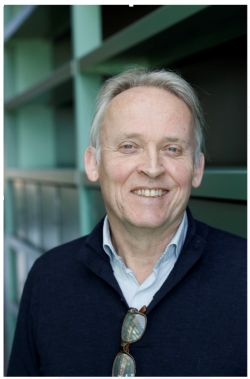Bert Kappen
 Bert Kappen completed his PhD in theoretical particle physics in 1987 at the Rockefeller University in New York. From 1987 until 1989 he worked as a scientist at the Philips Research Laboratories in Eindhoven, the Netherlands.
Bert Kappen completed his PhD in theoretical particle physics in 1987 at the Rockefeller University in New York. From 1987 until 1989 he worked as a scientist at the Philips Research Laboratories in Eindhoven, the Netherlands.
Since 1989, he is conducting research on neural networks, Bayesian machine learning, stochastic control theory and computational neuroscience. His research has made significant contributions to approximate inference in machine learning using methods from statistical physics; he has pioneerd the field of path integral control methods for solving large non-linear stochastic optimal control problems and their relation to statistical physics.
Currently, he is investigating ways to use quantum mechanics for a new generation of quantum machine learning algorithms and the 'quantum brain' to build neural networks and learning algorithms at the atomic scale.
Since 1997 he is associate professor and since 2004 full professor at the Radboud University. Since 2009, he is honorary faculty at UCL's Gatsby Computational Neuroscience Unit in London.
He co-founded in 1998 the company Smart Research that commercializes applications of neural networks and machine learning. Smart Research has developed forensic software for DNA matching used by the Dutch Forensic institute (MH17 plane crash over Ukraine in 2014), Interpol, the Vietnam government for analysis of victims of the Vietnam war and the Australian Police force. He is director of the Dutch Foundation for Neural Networks (SNN), which coordinates research on neural networks and machine learning in the Netherlands through the Machine Learning Platform.